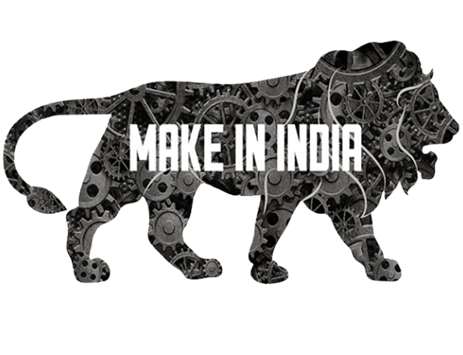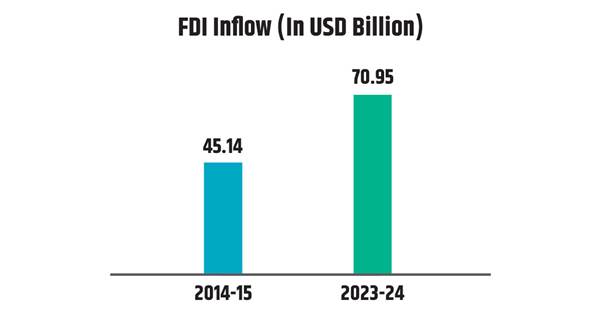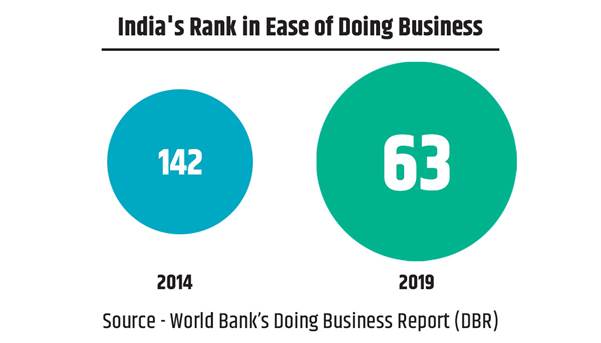Transforming India into a Global Manufacturing Powerhouse
Posted On:
10 SEP 2024 8:00PM
Introduction
Launched on September 25, 2014, by Prime Minister Narendra Modi, the "Make in India" initiative was a pivotal step in India's nation-building efforts. The initiative was conceived during a period when India's economic growth had sharply declined, and the country faced critical challenges in sustaining its development trajectory.
Against this backdrop, "Make in India" was designed to transform India into a global hub for design and manufacturing. Its core objectives were to facilitate investment, encourage innovation, and develop world-class infrastructure. As one of the pioneering 'Vocal for Local' initiatives, it sought not only to boost India's manufacturing capabilities but also to showcase its industrial potential on a global stage.
The initiative’s focus on developing a robust manufacturing sector promises to elevate India's economic trajectory and generate employment opportunities for its vast young workforce. Now, with the "Make in India 2.0" phase encompassing 27 sectors, the program continues to drive forward with significant achievements and renewed vigour, reinforcing India's position as a major player in the global manufacturing landscape.

Sectors Under ‘Make in India’ Initiative
|
Manufacturing Sectors
|
Service Sectors
|
|
Aerospace and Defence
|
Information Technology & Information Technology enabled Services (IT &ITeS)
|
|
Automotive and Auto Components
|
Tourism and Hospitality Services
|
|
Pharmaceuticals and Medical Devices
|
Medical Value Travel
|
|
Bio-Technology
|
Transport and Logistics Services
|
|
Capital Goods
|
Accounting and Finance Services
|
|
Textile and Apparels
|
Audio Visual Services
|
|
Chemicals and Petro chemicals
|
Legal Services
|
|
Electronics System Design and Manufacturing (ESDM)
|
Communication Services
|
|
Leather & Footwear
|
Construction and Related Engineering Services
|
|
Food Processing
|
Environmental Services
|
|
Gems and Jewellery
|
Financial Services
|
|
Shipping
|
Education Services
|
|
Railways
|
|
|
Construction
|
|
|
New and Renewable Energy
|
|
Pillars of ‘Make in India’
New Processes: The "Make in India" initiative identified 'ease of doing business' as a crucial factor for promoting entrepreneurship. Several measures were implemented to enhance the business environment, making it more conducive for startups and established enterprises alike.
New Infrastructure: The government focused on developing industrial corridors and smart cities, integrating state-of-the-art technology and high-speed communication to create world-class infrastructure. Innovation and research were supported through streamlined registration systems and improved intellectual property rights (IPR) infrastructure. Efforts were made to identify industry skill requirements and develop the workforce accordingly.
New Sectors: Foreign Direct Investment (FDI) was significantly opened up in various sectors including Defence Production, Insurance, Medical Devices, Construction, and Railway infrastructure. This expansion also included easing FDI regulations in Insurance and Medical Devices, encouraging international investment and growth.
New Mindset: The government embraced a role as a facilitator rather than a regulator, partnering with industry to drive the country’s economic development. This shift aimed to foster a collaborative environment that supported industrial growth and innovation.
Production Linked Incentive (PLI) Schemes to Promote Make in India
Aligned with India’s vision of becoming 'Atmanirbhar' (self-reliant), the Production Linked Incentive (PLI) Schemes were introduced to enhance the country’s manufacturing capabilities and boost exports. With an impressive outlay of ₹1.97 lakh crore (over US$26 billion), these schemes cover 14 key sectors aimed at fostering investment in cutting-edge technology and promoting global competitiveness.
The 14 sectors covered under the PLI Scheme include:
Mobile Manufacturing and Specified Electronic Components
Critical Key Starting Materials/Drug Intermediaries & Active Pharmaceutical Ingredients
Manufacturing of Medical Devices
Automobiles and Auto Components
Pharmaceuticals Drugs
Specialty Steel
Telecom & Networking Products
Electronic/Technology Products
White Goods (Air Conditioners and LEDs)
Food Products
Textile Products: MMF segment and technical textiles
High Efficiency Solar PV Modules
Advanced Chemistry Cell (ACC) Battery
Drones and Drone Components\
The primary goals of the PLI Schemes are to attract substantial investments, incorporate advanced technology, and ensure operational efficiency. By fostering economies of scale and enhancing global competitiveness, these schemes are expected to significantly boost production, stimulate manufacturing activities, and contribute to economic growth over the coming years.
As of July 30, 2024, 755 applications have been approved across these sectors, leading to an investment realization of ₹1.23 lakh crore by March 2024. This investment has generated employment for approximately 8 lakh individuals, marking a significant stride towards achieving the objectives of the PLI Scheme.
Record FDI to Boost ‘Make in India’
The success of the Make in India initiative has been significantly bolstered by record-breaking Foreign Direct Investment (FDI) inflows, driven by the simplification of FDI rules and improvements in ease of doing business. India now ranks among the top 100 nations in the Ease of Doing Business (EoDB) index. FDI inflows have steadily risen, starting from $45.14 billion in 2014-15 to a record $84.83 billion in 2021-22. Between April 2014 and March 2024, India attracted $667.41 billion in FDI, representing nearly 67% of the total FDI received over the last 24 years. In FY 2023-24, total FDI inflows amounted to $70.95 billion, with equity inflows reaching $44.42 billion, underscoring India's growing appeal as a global investment destination.

Ease of Doing Business
India made remarkable progress in improving its business environment, climbing from 142nd in 2014 to 63rd in the World Bank’s Doing Business Report (DBR) 2020, published in October 2019 before its discontinuation. This 79-rank jump over five years reflects the government’s sustained efforts to simplify regulations, reduce bureaucratic hurdles, and create a more business-friendly environment, significantly boosting investor confidence and supporting the objectives of the Make in India initiative.

Major Achievements under Make in India
Powered by indigenously produced vaccines, India not only achieved COVID-19 vaccination coverage in record time but also became a major exporter of much-needed life-saving vaccines to many developing and under developed countries across the world.
Vande Bharat Trains, India’s first indigenous semi-high-speed trains, are a shining example of the success of the 'Make in India' initiative. Featuring state-of-the-art coaches, these trains offer passengers a modern and enhanced travel experience. As of now, 102 Vande Bharat train services (51 trains) are operational across Indian Railways, connecting states with a Broad-Gauge electrified network and showcasing India's growing capability in advanced rail technology.
INS Vikrant is India's first domestically made aircraft carrier. India is achieving new milestones in defence production to reduce imports and be Atmanirbhar in this core sector.
India’s electronics sector has experienced rapid growth, reaching USD 155 billion in FY23. Production nearly doubled from USD 48 billion in FY17 to USD 101 billion in FY23, driven primarily by mobile phones, which now constitute 43% of total electronics production. India has significantly reduced its reliance on smartphone imports, now manufacturing 99% domestically.
India recorded merchandise exports worth $437.06 billion in FY 2023-24, reflecting the country's growing role in global trade.
Indian bicycles have gained international acclaim, with exports to the UK, Germany, and the Netherlands soaring. This surge highlights the global recognition of Indian engineering and design.
'Made in Bihar' boots are now part of the Russian Army’s equipment, marking a significant milestone for Indian products in the global defence market and showcasing the country’s high manufacturing standards.
Kashmir willow bats have become a global favourite. Their popularity underscores India’s exceptional craftsmanship and influence in international cricket.
Amul has expanded its presence by launching its dairy products in the US. This international venture reflects the global appeal of Indian Flavours and Amul’s role in promoting Indian dairy on the world stage.
India’s Unified Payments Interface (UPI) has achieved global success, facilitating seamless digital transactions in multiple countries. This advancement underscores India’s leadership in fintech innovation and its role in transforming digital payments worldwide.
Conclusion
The "Make in India" initiative has transformed the country into a thriving hub for design, innovation, and manufacturing, positioning it as a global leader in various sectors. With strategic reforms, investment-friendly policies, and a strong focus on infrastructure development, the initiative has significantly enhanced India's industrial capabilities. The success of indigenous projects like the Vande Bharat trains and INS Vikrant, alongside record-breaking FDI inflows, reflects India's growing self-reliance and global competitiveness. As India moves forward with initiatives like the Production Linked Incentive (PLI) Scheme and PM GatiShakti, it is well on its way to achieving sustained economic growth, creating employment opportunities, and strengthening its position on the global stage. The future of India's manufacturing and industrial sectors looks promising, driven by innovation, infrastructure, and a renewed commitment to economic excellence.
References:
Click here to see in PDF:
Santosh Kumar/ Sarla Meena / Saurabh Kalia
(Backgrounder ID: 152123)
Visitor Counter : 9928
Provide suggestions / comments